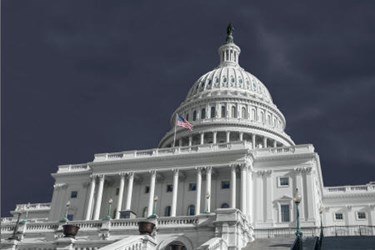Senate Ends Debate Over "Cures;" Bill Expected To Pass This Week

A cloture vote by the U.S. Senate on Tuesday has ended debate in the Senate over the 21st Century Cures Act and paved the way for a vote on passage of the bill, which could happen as soon as today. Under cloture, a procedure intended to break filibusters, the Senate may limit consideration of a pending matter to 30 additional hours of debate.
The bill — which has been intensely debated for over three years — is expected to expedite regulatory approval of devices and drugs and fund National Institute of Health (NIH) research initiatives for cancer and Alzheimer’s. It has gained widespread support on the basis of NIH funding for Vice President Biden’s Cancer Moonshot and other initiatives that would fund precision medicine research and innovations in neuroethologies. Still, analysts have speculated that these programs may come under fire when the new administration comes to the White House in January.
The Senate’s cloture vote to end debate on the bill met with overwhelming bipartisan support and passed 85-13. U.S. Sens. Elizabeth Warren (D-Mass) and Bernie Sanders (D-Vt) were among the dissenting votes. Warren argued that “Cures” does nothing to curtail “skyrocketing” price of treatments, calling the bill “exploitation,” rather than compromise, reported the Star Tribune. Critics of the bill also worry that it will “continue a trend of eroding standards” at the FDA, according to an editorial in the Los Angeles Times.
Senators were split along party lines when presented with a previous version of the bill last year, which passed in the House last July. Discussions of the bill reportedly came to a standstill due to questions over $9 billion in NIH funding, but Senate Majority Leader Mitch McConnell and House Speaker Paul Ryan announced in September that a lame-duck session would make the bill a “top priority” following the election.
The U.S. House of Representatives passed the revised version of the bill in a 392-26 vote last week, and Scott Whitaker, CEO for the AdvaMed, told Star Tribune that the “package includes a number of important improvements to the [FDA’s] medical device premarket program designed to increase the efficiency, predictability and transparency in the agency’s review process.”
Senator Amy Klobuchar (D-Minn.) told Star Tribune that the revised bill includes substantial funding for NIH research initiatives, including $1 billion earmarked for the opioid crisis in the U.S. Withheld from the bill were measures that would have restricted public access to information regarding payments to doctors by device and drug companies. According to reports mandated by the Sunshine Act, the industry paid out over $7.5 billion to providers in 2015.
Whitaker called passage of the bill a “milestone in improving the innovation ecosystem for medical technology,” according to NPR. The Public Citizen’s Health Research Group expressed concern that the bill did not do enough to clarify which device approvals could be expedited.
Provisions in the bill will allow drug and device manufacturers to use “data summaries” to support clearance for new indications and companies to promote off-label uses for their products. The FDA recently hosted a discussion and heard testimony for and against greater flexibility for device promotion.
